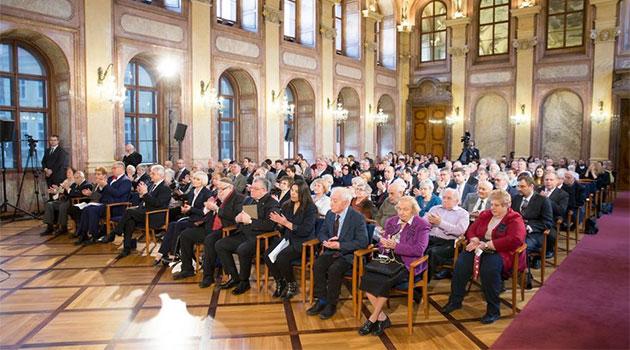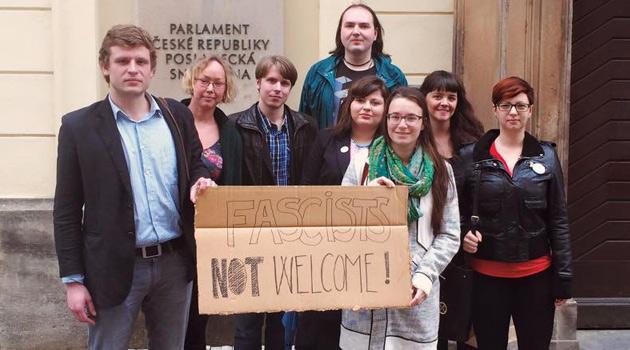Czech Parliament marks International Holocaust Memorial Day with Romani speaker

Czech MP Radek Vondráček (ANO), speaker of the Chamber of Deputies of the Parliament of the Czech Republic, addressed a gathering in the Czech Senate Friday on the eve of International Holocaust Remembrance Day, 27 January, saying that the current civilized state of society should not be taken for granted. Underestimated sparks of the hateful ideologies that have led in the past to people being annihilated because of their different ethnicities or faiths could yet become an uncontrollable blaze, Vondráček said.
The gathering was also addressed by Romani community member Růžena Ďorďová, who reminded those gathered of the struggle to remove the pig farm from the former concentration camp for Romani people at Lety u Písku. “Let’s stop fighting one another. Let’s do our best to reach agreement and cooperate. The struggle to demolish the pig farm was not the work of one person, but was joined by many people and organizations. The success of fighting for dignity at Lety u Písku can be significant to all of us only if we listen to each other and all do our part,” Ďorďová said in her speech.
Vondráček told those assembled that “The biggest threat posed by an ideology that could have similar consequences [to the Holocaust] is that it arrives slowly, insidiously and unobtrusively. As with a disease, it must be fought from the moment the first symptoms appear, because after the infection develops further, treatment becomes more demanding and sometimes even requires drastic interventions,” he said.
The best approach, according to the speaker of the Czech lower house, is prevention, which includes commemorating the victims of the Nazi annihilation of the Jewish population. The chair of the Czech Senate Milan Štěch (Czech Social Democratic Party – ČSSD) said in his remarks that “The Nazis monstrously perfected something that can break out again anytime, anywhere,” referencing ethnic purges in various parts of the world.
“Fanaticism continues to exist, society is more and more divided,” the Senator added. In his view, Holocaust denial is dangerous and we cannot be indifferent to it.
Tomáš Radil, a former prisoner of the Nazi death camp at Auschwitz, said the main thing to be learned from the Holocaust is that such murders must be stopped and never allowed to recur. For his part, the Archbishop of Prague, Dominik Duka, said the point of the gathering was to express disagreement with the growth of antisemitism in parts of Western Europe and with the “terrorist attacks that are being dismissed or ignored in the spirit of political correctness.”
Duka said that at a time when significant organizations such as UNESCO are “publishing declarations against Judaism“, displays of solidarity are “not enough”. He closed his speech with the Jewish salute “Shalom” (which means “peace”).
The chair of the Foundation for Holocaust Victims in the Czech Republic, Michal Klima, warned that some people today are calling for their fellow citizens of other faiths and nationalities to be destroyed, and for that reason the Czech Republic must remain a member of the free world, of the democratic West, and being aware of the past, Czech voters should choose a democratic, free future in the presidential elections. The gathering in the Czech Senate was convened by the Federation of Jewish Communities in the Czech Republic and the Foundation of Holocaust Victims.
The event included an exhibition entitled “Beyond the Borders of Obligation – Diplomats Awarded the Title of ‘Righteous among Nations'”, which was produced by the Embassy of Israel to the Czech Republic. International Holocaust Remembrance Day commemorates 27 January 1945, when the concentration camp at Auschwitz in southern Poland was liberated.
Between 1940 and 1945, 1.1 million people were murdered at Auschwitz, most of them Jewish. The prisoners at Auschwitz included 50 000 citizens of Czechoslovakia, about 6 000 of whom survived.
The Nazis murdered six million people of Jewish origin during the Second World War. The interwar Jewish community of Czechoslovakia was 350 000 strong, 250 000 of whom died during the war.
